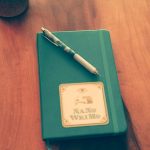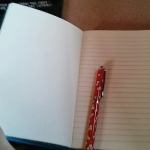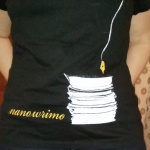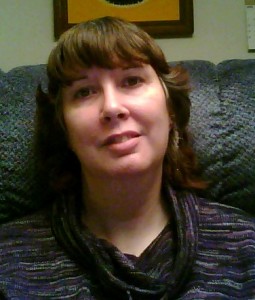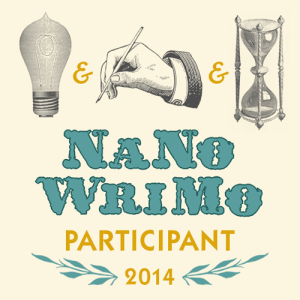 I’ve known about NaNoWriMo (National Novel Writing Month) for just about forever. I’m fairly sure I even signed up one year. But I’ve never made a concerted effort to participate before and I’ve certainly never been successful. 50,000 words in a month is a hefty challenge.
I’ve known about NaNoWriMo (National Novel Writing Month) for just about forever. I’m fairly sure I even signed up one year. But I’ve never made a concerted effort to participate before and I’ve certainly never been successful. 50,000 words in a month is a hefty challenge.
I consider writing much like any other challenge. It’s easier to keep going once you’re already going. And this is an important point for me. You see, I have two plots bouncing around in my brain right now. They’ve been there for a while, each growing slowly as I ruminate over them. Neither one has made it from my head to my computer, however. This means they are unlikely to ever make it to readers.
Best intentions are funny things. No matter how much I seem to want to birth these stories, I’ve found myself stymied at every aborted attempt. I’m left wondering how I ever even managed to get my first book to print. (Actually, if I’m honest, I know it happened because I never allowed myself to acknowledge that I was writing an actual BOOK and therefore avoided all of the author-centered self doubt that so compromises me now.)
Then, here comes NaNoWriMo, supposedly the perfect prompt. I even live in a moderate sized city. There are numerous pre-nano workshops and kickoff parties (even a midnight affair Halloween night) within an easily drivable distance from me. There are three separate weekly write-ins on three separate days that I can attend (more if I was willing to drive a bit farther). There is a fairly active Regional Forum and even a live chat room I can visit (and hopefully not use to procrastinate). There is a lot of support in this city.
I still face challenges, even with so much local activity about though. I have children at home, which means that daytime meetings are generally off-limits. Then there’s dinner and the guilt associated with dumping said children on the husband as soon as he drags it in the door from work, making evening meetings difficult.
All topped off by my amazing social awkwardness in real life. I went to one of the kickoff parties, for example, and hardly spoke to anyone,  just hovered around looking miserable and wishing I hadn’t worn knee-high boots. (Ok, I must have spoken to someone. That’s me in the yellow, with my hand anomalously in the air. I can only hope I was making some salient point and not just helplessly flailing.) Either way, I’m a mess meeting new people and I can easily see myself talking myself out of going to write with other people.
just hovered around looking miserable and wishing I hadn’t worn knee-high boots. (Ok, I must have spoken to someone. That’s me in the yellow, with my hand anomalously in the air. I can only hope I was making some salient point and not just helplessly flailing.) Either way, I’m a mess meeting new people and I can easily see myself talking myself out of going to write with other people.
And yes, those are excuses, mental hurtles that I know I can find a way around if I just try hard enough. So I’ve taken the last week or so to get ready, to psych myeslf up.
I’m trembling in my metaphorical boots, but I think maybe I’ve got this. I’ve got a brand spankin’ new moleskin and fancy pens and pencils. (I work best when actually scratching paper.) I’ve put all the write-ins on the calendar, with popup notifications. Look, I even got the T-shirt. Because obviously one writes better when properly attired. Riiightt. Don’t argue. Just roll with it for me.
I’ve registered on the website, read the NaNo prep page (apparently I’m a Pantser, good to know). I’ve checked out the Map-of-the Month and the blog. I’ve joined a Goodreads NaNoWriMo group, liked the NaNo Facebook page and followed NaNoWriMo on Twitter.
I’ve also picked out my non-write-in, out of the house writing hole and given it a test run to make sure the lattes and  pastries are up to par. (If you’re a Webster Groves/Kirkwood/Maplewood/Sunset Hills/etc local and want to meet up, feel free to toss me an email to find out where I’ll be.) So, yes, while I’m still scared silly that I won’t bring the story I’ve chosen to focus on to life, I’m doing what I can to set myself up for success.
pastries are up to par. (If you’re a Webster Groves/Kirkwood/Maplewood/Sunset Hills/etc local and want to meet up, feel free to toss me an email to find out where I’ll be.) So, yes, while I’m still scared silly that I won’t bring the story I’ve chosen to focus on to life, I’m doing what I can to set myself up for success.
And herein lies the point of this post. What I don’t have but need is a team. I need friends and writing buddies who will not only inspire me, but nag me, needle me, look at me with sad disappointed eyes if I don’t make enough of an effort, maybe even cuss at me on occasion. In exchange, I’ll do the same for them (you?). In the end, isn’t that the whole point of the NaNoWriMo event? I’m registered under Saussy and I’d be thrilled to hear from you.
If you, like many of the visitors to this blog, are here seeking a book review, all the policies still apply. But be advised that for the next 30 days my reading will be sharply curtailed and it’s unlikely I’ll read anything new before December.
Here’s hoping for the best. Keep your fingers crossed for me.

